No products in the cart.
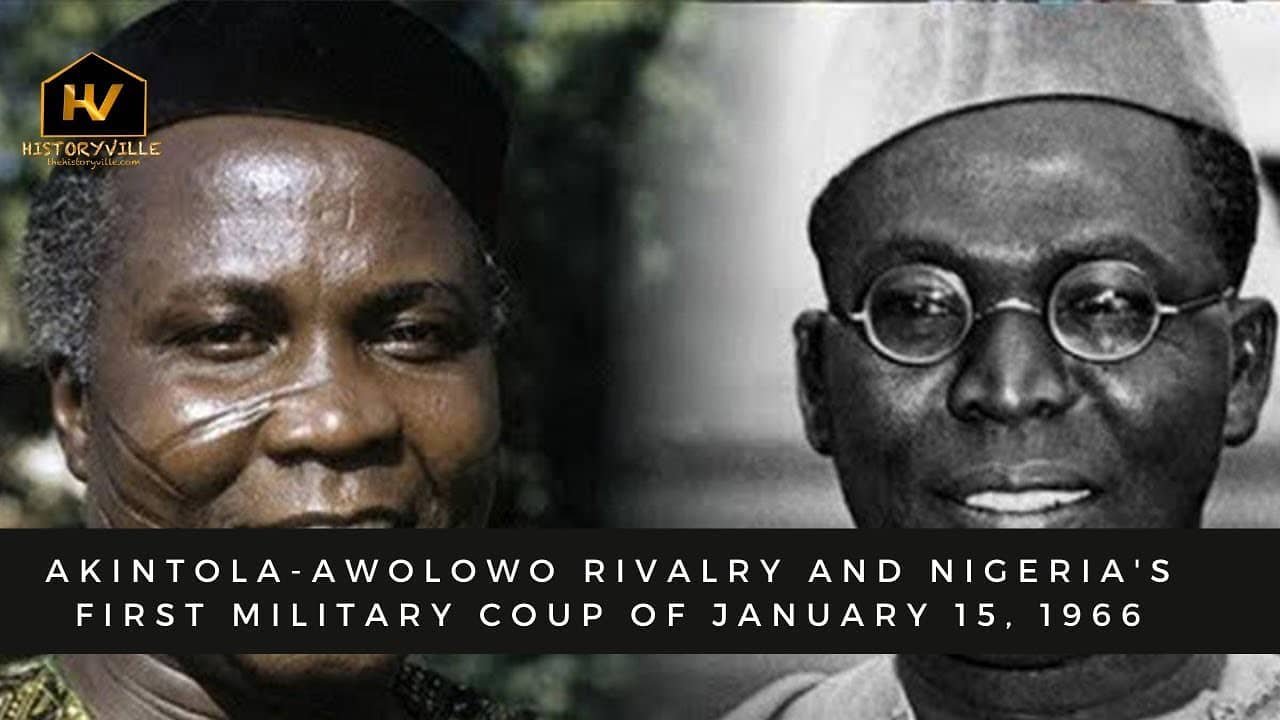
The Operation Wetie of the First Republic Western Region in 1965 was one of the excuses Majors Emmanuel Ifeajuna and Kaduna Nzeogwu with their cohorts gave when they struck on the morning of January 15, 1966, to end Nigeria’s First Republic.
There were widespread looting, riots, and murder as many political opponents were also burnt alive. The West which had been the bride of the nation in terms of development was now a political Warzone where thugs and urchins engaged in wanton killings and destruction of properties. The event came to be known as Operation Wetie. And the Western Region was nicknamed the Wild, Wild West….
Adegoke Adelabu and the 1959 Federal Elections
The 1959 Federal Elections had put Chief Obafemi Awolowo (1909-1966) of the Action Group Party (AG) as the Leader of the Opposition in the Federal Parliament while his Deputy, Chief Samuel Akintola (1910-1966), became the Premier and the Leader of the Government of Western Region.
Contents
Pragmatic leaders had chosen Akintola to succeed Awolowo when the latter resigned the premiership of the Western Region to contest the 1959 Federal elections. They reasoned that he (Akintola) was a logical choice not only because of his previous association with the Party but more so because of his hometown in Yorubaland.
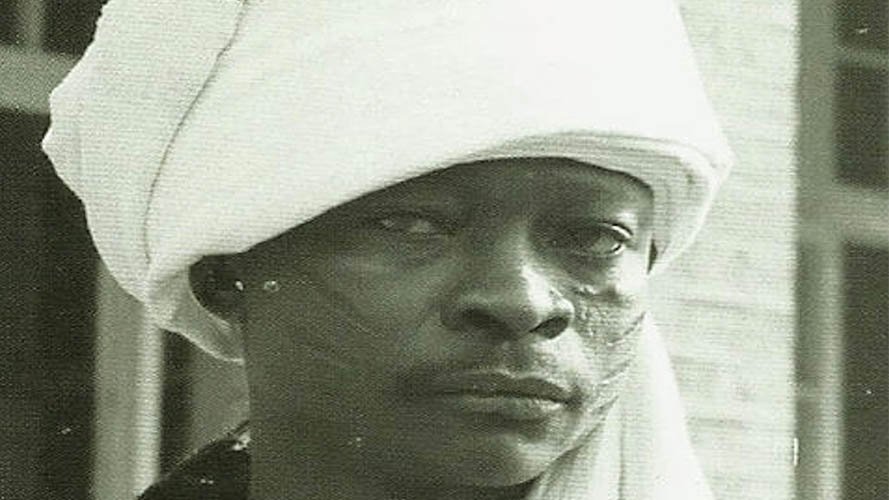
The Action Group Party had never won the Ibadan constituency and other constituencies around Ibadan. There had always been intra-ethnic rivalries between Oyo and Ibadan on one hand and the Ijebu people on the other hand. Chief Akintola was from Ogbomosho which is in the Old Oyo Kingdom. Chief Awolowo on the other hand, was an Ijebu-Yoruba. The different intra-Yoruba rivalries did not encourage harmonious unity within the Party.
Alhaji Adegoke Adelabu, a Yoruba from Ibadan and a member of the rival National Convention of Nigerian Citizens (NCNC), had always successfully exploited the Action Group’s intraparty rivalries to his party’s advantage.
With Awolowo going to the Federal Parliament and Adelabu dead due to a motor accident and hence, out of the political scene, the AG could win all the seats in the Old Oyo Kingdom as a result of the traditional son of the area, Akintola, as the Premier of the region.
This strengthened the Party’s power in the Western Region and fortunately, it gained the Ibadan area which was a previous stronghold of the NCNC when Adelabu was alive.
The Genesis of Operation Wetie
Before the advent of Operation Wetie, party leaders with the Western Region in their grasp, party leaders started plans to gain power at the federal level, having won 25 seats in the North and 14 seats in the East in the 1959 elections.
But the party could not form the federal government through votes based on the conditions of the country as the Northern Region alone was two and a half times the size of the other regions (Western and Eastern) put together.

So, they suggested that the only way to power at the federal level was to form a National Government which would comprise all the ruling parties in the different regions. The implication was that the Action Group Party would refrain from any serious political activities in the other regions where it had established a small but virile political base.
Akintola was in strong favour of forming a National Government which would include all the ruling political parties and advocated an approach to the NPC (Northern People’s Congress) but Awolowo and other party members were opposed to it. Instead, they suggested that the party should make advances to the southern NCNC and not to the NPC. Their hope was that the AG and the NCNC could team up together to contest the next federal elections and would break Northern Nigeria and the East into more regions.
From these two different suggestions rose opposed factions within the Action Group Party, one under Akintola and the other under Awolowo.
The 1962 Action Group Convention
The conflict continued discreetly within the party until February 1962 after the party’s annual convention at Jos when Akintola, Ayo Rosiji (Party Secretary) and some Western Regional Ministers walked out of the convention because of disagreement on several matters. As disciplinary measures, the Party relieved Rosiji as Secretary and was replaced with Samuel Ikoku, Leader of the Opposition in the Eastern House of Assembly.
More importantly, the post of the party’s Deputy Leader which Akntola held was abolished. The Executive Committee of the Party also found Akintola guilty on twenty-four charges to which he pleaded guilty and asked for forgiveness.
The Party held firm and decided that Akintola should be removed from his positions he held as its Deputy Leader and as the Western Regional Premier. The former was done by the Party and the latter was to be executed by the Governor of the Western Region, Oba (Sir) Adesoji Aderemi.
Akintola accepted the first punishment but rejected the second and maintained that he had not been given the chance to test his popularity on the floor of the Western House of Assembly.
A majority of the members signed a petition withdrawing their support from Akintola and presented it to the Regional Governor. More importantly, they asked the Governor to use the powers conferred on him under Section 33 (10) of the Region’s Constitution to remove Akintola from office, to which the Governor complied. The relevant section of the Constitution states that:
“The Governor shall not remove the Premier from office unless it appears to him that the Premier no longer commands the support of a majority of the House of Assembly”.
As expected, Akintola challenged his deposition in a lawsuit at the High Court of Western Nigeria who then transferred it to the Federal Supreme Court in Lagos to rule on the constitutionality of the dismissal.
A Rumble in a Jungle
Meanwhile, the Action Group Party chose a new Premier in Alhaji Dauda Adegbenro whom the Governor appointed. The new Premier was to seek a vote of no confidence in the Western House of Assembly on May 24, 1962, when Akintola’s faction chose to disrupt the proceedings and because of the ensuing fracas had the Federal Government dissolve the House.
At the time the legislature was to meet, some members of Akintola’s faction in the House went in and smashed windows and furniture and beat up members of the Parliament.
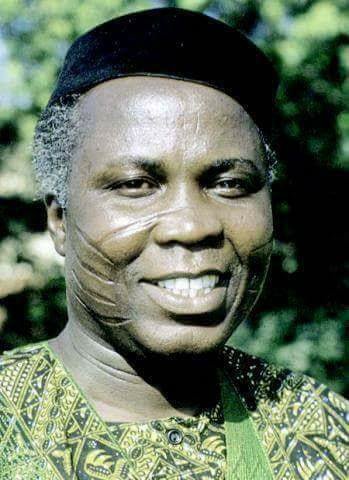
Chief Odebiyi (Minister of Finance and Leader of the House) was about to move the first business motion of the day when Mr. E.O Oke (Ogbomosho South-West) jumped up, raised an alarm and flung a chair across the floor of the House. Mr. F. Ebubedike (Badagry East) seized the Mace and smashed it on Mr. Speaker’s table.
Mr. S.A Adeneya (Oyo East) then seized the chair and hit the Minister of Trade and Industry, Mr. K.S.Y Momoh, on the head. He was rushed to the hospital for treatment. At this stage, members of the Akintola faction, assisted by the NCNC opposition, smashed chairs and tables and the Police had to use teargas to disperse the scuffling.
After both Premiers (Adegbenro and Akintola) petitioned the Prime Minister, Alhaji (Sir) Abubakar Tafawa Balewa, the Assembly reconvened again. Unfortunately, the outcome was as severe (even worse according to witnesses) as the first time.
At once, the Akintola faction and the NCNC opposition began to shout and bang their chairs.
Chief S.A Tinubu sat on the floor beside the Speaker’s chair and continually rang a bell. Mr. J.O Adigun threatened to throw the Record Book at the Speaker. Mr. Akinyemi smashed one dispatch box and Mr. Adedigba threw the other at Alhaji Adegbenro before it was caught by the Sergeant-at-Arms. Mr. Adeneya then hit the Speaker with a chair, while the NCNC members smashed theirs or threw them at opponents.
All this time the Police had been begging the Speaker to let them act and when he finally did so, they used their clubs, released teargas again, cleared the House and then locked it up. This action would eventually act as a precursor to Operation Wetie.
State of Emergency
Because of the chaotic atmosphere, Prime Minister Balewa declared a state of emergency in the West on May 29, 1962, before an emergency session of the Federal Parliament.
Obafemi Awolowo, Leader of the Opposition, replied that a state of emergency did not exist in the Western Region as the violence was only confined to the Regional House of Assembly while the rest of the West was calm and quiet.
Awolowo’s objection was to no avail and the Federal Parliament passed a bill that declared a state of emergency in the West with the rights to detain and restrict persons, and the imposition of curfews with the appointment of Dr. Moses A. Majekodunmi, a distinguished gynaecologist, a Senator and Federal Minister of Health as the Sole Administrator of the West.
Majekodunmi’s first act was the service of restrictions on a number of people. These included the two Premiers, Akintola and Adegbenro, Obafemi Awolowo, and R.A Fani-Kayode. While the restriction orders on Akintola’s faction and NCNC members were lifted in barely two months, those of the Action Group members remained restricted.
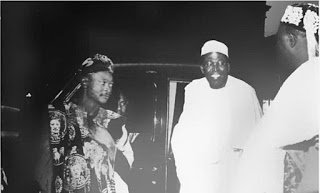
Dr. Majekodunmi also instituted a Commission of Inquiry, headed by Judge George Baptist Ayodola Coker (1917-1991) of the Lagos High Court into corporations owned by the Western Region and the Commission revealed instances of poor administration and misappropriation of public funds for the benefit of the Action Group Party. The report came down hard on Awolowo and other AG members in his faction but exonerated Akintola.
The stage for the final act was set in the Commission’s report of a treasonable felony on Awolowo and his AG members.
End of Emergency Rule
Searches the Nigeria Police carried out in the country during the emergency period in Western Nigeria revealed large quantities of arms and ammunition which some AG members imported into the country to be used, allegedly, to overthrow the Federal Government.
Obafemi Awolowo, Anthony Enahoro, as well as some two dozen others were charged with treasonable felony and conspiracy to overthrow the Federal Government. Awolowo was sentenced to 10 years while Enahoro and others were sentenced to 15 years imprisonment. These actions led to the demise of the Action Group and on December 31, 1962, the state of emergency was terminated.
On January 1, 1963, Akintola was reinstated as Premier of the Western Region and the Head of the new Government at Agodi, Ibadan, the seat of the Regional Government with the formation of his new party, United People’s Party (UPP), which consisted of those former Action Group Party members he was able to win to his side on his expulsion from AG.
It was a coalition government that was formed by the UPP and the NCNC which had previously formed the Opposition. The Action Group Party, which had previously formed the Government of the Western Region, now moved into the Opposition.

In 1964, the UPP had evolved to be the Nigerian National Democratic Party (NNDP) with Akintola as the leader and as a friend of the ruling party, NPC.
Hence, the 1965 Western Regional elections gave the NPC another chance of maintaining its political power in the country, a hegemony which other political power found irksome.
More importantly, the NNDP was determined to remain in power. In the face of all overwhelming odds against the NNDP should the elections be free and fair, it was left with one alternative – to rig the elections.
The 1965 Western Regional Elections
Whether or not the NNDP was following precedence established by previous political parties, the massive rigging of the Western Regional elections of October 11, 1965, was flabbergasting. The methods of electoral fraudulence employed were the familiar ones, but the scale to which they were used was overwhelmingly much more severe which unfortunately led to the famed Operation Wetie.
The Electoral Commission led by Mr. Eyo E. Esua publicly admitted that electoral officers were kidnapped and therefore, could not carry out their duties while some refused to accept nomination papers of certain candidates and others failed to report for duty. Many candidates who had obtained validity papers were elected “unopposed”.
The inability of the candidate to register aside, there were questions of ballot papers “floating around” in the West despite the precautionary measures of giving the ballot papers to the Police.
The use of party agents and thugs camouflaged as members of the Local Government Police was common and rigging was employed in every conceivable means. Counting was not completed in some stations before the results of these stations were broadcast over the radio. Some candidates were declared elected although their opponents scored higher votes.
As a result of the grave irregularities, the NNDP won the elections, 16 of its candidates having been returned unopposed at the close of nominations. It was publicly charged that the NNDP victory was due to fraud.
Operation Wetie
The political atmosphere in the Western Region looked bleak and dismal and the after-effects of the elections were even more severe and devastating. Defeated political candidates had in the past run to the courts to challenge irregularities at elections. This time they did not go to courts. Instead, the people took the law into their hands.
Riots, looting, arson, and murder were the rule of the day. Party thugs poured gasoline on opponents and set them on fire, a situation then known as Operation Wetie. Properties, bags of cocoa and other produce of opponents awaiting shipment were also set ablaze. Without a doubt, the destruction of properties was not as horrifying as setting human beings on fire.
Aftermath of Operation Wetie
By November 1, 1965, the Operation Wetie riot at Ekiti resulted in the death of 15 people while a fresh riot, four days later, caused the loss of 20 lives. Sixteen people were killed in Ijebu-Ode and Ondo areas on November 7, 1965.
Houses and vehicles were set on fire and to travel within the Western Region and from other regions into the West was a menace because of thugs and gangsters who took law into their own hands while the Police failed to maintain law and order. There were tension and wanton destruction of human lives and properties.
Nigerians looked to the Federal Government to step in to arrest the situation in the Region, but all pleas were to no avail.
Meanwhile, the Operation Wetie riots and killings continued and the NNDP Government of the Western Region imposed curfews in Mushin, Ikeja, Agege, Ajeromi, and Awori districts. Yet, the disturbances continued and each day brought a new toll of rioting, arson, looting, and murder.
The Operation Wetie crisis over the struggle for political power during the Western Regional elections of October 11, 1965, was the last straw that broke the camel’s back which really convinced the “five Majors”, as I have written in the first paragraph, of their 1966 Nigerian coup d’état on the cold Saturday morning of January 15.
You can also get A Carnage Before Dawn, a historical account of Nigeria’s first coup d’état. E-book here. Paperback here. And on Amazon Kindle and Amazon Paperback.
We always have more stories to tell, so make sure you are subscribed to our YouTube Channel and have pressed the bell button for interesting historical videos. You can also follow us on all our social media handles and don’t hesitate to as well share this article with your friends.
Sources
Ojigbo A.O. (1979). 200 Days to Eternity: The Administration of General Murtala Ramat Muhammed.
Abegunrin O. (2003). Nigerian Foreign Policy Under Military Rule, 1966-1999.
Usman A., Falola T. (2019). The Yoruba from Prehistory to the Present.
Leave a Reply
You must be logged in to post a comment.


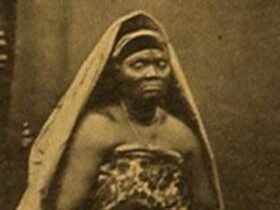
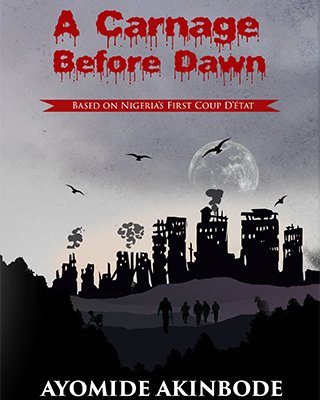



Leave a Reply
View Comments